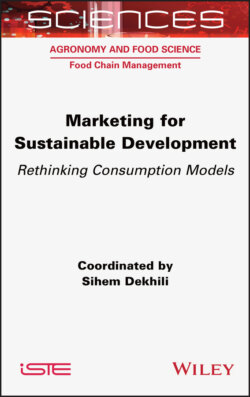Читать книгу Marketing for Sustainable Development - Группа авторов - Страница 22
1.4.2. Towards a necessary reconfiguration of supply and distribution channels
ОглавлениеIn the same vein as the obligation to rethink product offers, the members of the communities studied take into account their search for alternative supply structures, which are deployed alongside traditional distribution networks, which are characterized by unethical practices, namely, an appropriation of value and an unequal distribution of profits. This naturally leads to a shift towards substitute supply networks that respond to the imperatives of responsibility and sustainability, such as short, circular or cooperative networks, among others. These alternative structures rely on different operations and aims than those dependent on the convention model, insofar as they respond to expectations for healthy and authentic products, created in decent working conditions, for a fair price and with less of an environmental footprint.
While it is well known that these alternative structures already operate alongside the market, they are the subject of repeated demands from the members of the three communities, who call for them to become widespread throughout society as a whole and to progressively become the norm in consumption. According to these communities, short networks that use a smaller number of intermediaries should be prioritized, thereby promoting a more equitable distribution of revenues among (small) producers and retailers, and the proposition of more accessible prices for end consumers. To that end, a number of members have attributed the high cost of “green” products to the currently significant number of intermediaries between the production stage and the product becoming available to the end consumer. The supply networks promised by these communities are therefore characterized by direct purchasing from farmers, local producers, peasant associations, green cooperatives and activist structures, such as Enercoop and Kokopelli. To that end, the members share web links to various shopping websites to encourage, in particular, the use of Amap (Associations pour le maintien d’une agriculture paysanne – Associations for the Maintenance of Peasant Agriculture), as highlighted in the following post: “The Amap directory for France: www.reseau-amap.org. On this site you will find: information on what an Amap is, an Amap directory and a guide to help you to create your own Amap” (Le changement par la consommation). Lastly, the members of these communities promote experimentation with new forms of trade, following the example of networks of mutual aid, second-hand sales and free provision of goods and services between individuals sharing the same values of responsible consumption through the organization of regular or periodic events (such as trade fairs, markets or swap sites). A number of sites have thereby been made available to members, who have many spaces dedicated to talking about their experiences and recommendations from their participation in these events. In doing so, they contribute to creating a sort of library of knowledge that is distributed between the different members and continually enriched by the experiences shared. The example of the site recup.net, shared on several occasions by the community moderator of “Le changement par la consommation”, is telling. It highlights the importance of the circular economy in reducing the production of waste, protecting the environment and combating planned obsolescence:
The Recup site is a site for donation, reclamation and free swaps, where everyone is able to propose and give over the Internet, rather than throwing out what they want to get rid of. Recup.net is not a site facilitating sales or trades [...], but a site for donations. It must remain a sharing space where anyone can find free recovered objects.6
